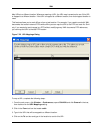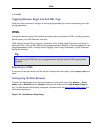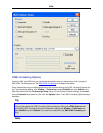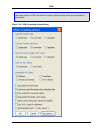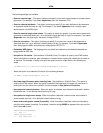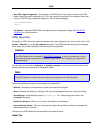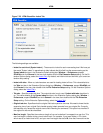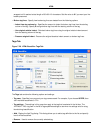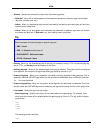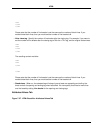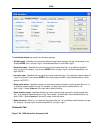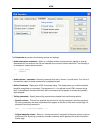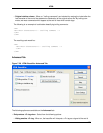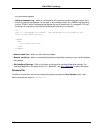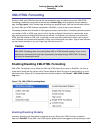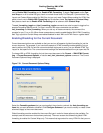
• Content - Specify how to beautify content from the following options:
• Reformat - When off, all white space and line breaks are preserved. However, tags are formatted
(tag case, attribute case, etc.).
• Indent - When on, the selected tag's content, bounded by the opening and closing tag, will be inden-
ted one syntax indent level.
• Literal - When on, all white space and line breaks are preserved. In addition, tags within the content
are treated as literal text. If Reformat is on, then leading indent is adjusted.
Tip
Some examples of content settings for specific tags are:
• XMP - Literal
• PRE - All Content check boxes off
• BLOCKQUOTE - Reformat, Indent
• STYLE - Reformat, Literal
• End tag - When on, the selected tag has an end tag. For example, the tag <TD> has a ending tag tag
that is </TD>, so End tag would be checked in this case.
• End tag required - When on, the selected tag's ending tag is required. This means that the ending tag
is not optional. An example of a tag whose ending tag could be optional is <P>.
• Preserve tag body - When on, all properties of the body of the tag selected will be preserved. This is
especially useful for JSP/ASP tags where you do not want the embedded Java or VBScript inside the
<% ... %> to be beautified.
• Preserve tag position - When on, the position of the tag within the document is preserved. This is es-
pecially useful with JSP/ASP tags where reindenting the tag would interrupt the flow of the script code.
• Line breaks - Select the way lines are broken:
• Before open tag - Specify the number of line breaks before the opening tag. For example, if you
were to set the number of line breaks before the opening tag to 3 for the <TD> tag, and the original
content was:
<TR>
<TD>
</TD>
</TR>
The resulting content would be:
<TR>
HTML
273



